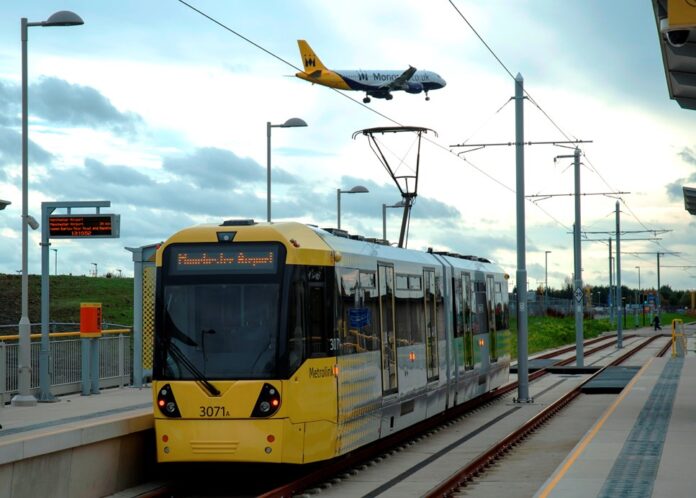Metrolink has boosted residents’ access to employment, education and healthcare and significantly contributed to reductions in car journeys and improved air quality.
Those are just some of the findings contained within a detailed monitoring and evaluation report of Metrolink’s ‘phase 3’ expansion project.
The c£1.5bn programme brought new lines through dozens of local communities, with extensions to Rochdale via Oldham, Ashton-under-Lyne, East Didsbury and Manchester Airport delivered between 2010 and 2015.
It signifies one of largest and most ambitious transport projects to be delivered in the UK and is unprecedented in the light rail industry in terms of the size and scale of growth.
The report, which was done using in-house TfGM resources and external specialists, found that,the new lines have removed 38.8 million car kilometres per year from our roads – contributing towards Greater Manchester’s goal of 50% of all journeys being made by public transport and active travel by 2040.
This has contributed to a reduction in carbon emissions, saving 6,700 tonnes of CO2 in 2019/20 – helping to accelerate the city-region commitment to be carbon neutral by 2038.
A major uplift in usage is possible when moving from a largely neglected and low-level rail service to a high-quality rapid transit system. For 2019/20, 6,125,000 trips were estimated to have been made on the Rochdale via Oldham line, representing an increase by a factor of 5.4 relative to the 2008/09 heavy rail figure (1,150,000).
Based on modelling, there has been a significant improvement in public transport access to employment, further education and healthcare, an improvement that is particularly noticeable for the more deprived communities of Greater Manchester. The analysis shows that public transport door-to-door access has improved for the following proportions of the Greater Manchester population.
he report also found benefits have been identified by businesses in terms of improved customer and labour force catchments, as well as opportunities for business travel. In-depth interviews in the Wythenshawe area have revealed positive impacts within the local community.
While pre-COVID-19 patronage had not reached the levels originally anticipated when the forecasts were prepared before the 2008 recession, the expansion has led to a doubling of trips made – from c20m in 2010 to 45.6m in 2019.
Independent of TfGM-commissioned analysis, studies have found houses closer to a Metrolink stop command a premium of 7.8% (within 500m) compared to 1.5% for houses 1,250m from a stop. The network was also identified as one of the best large tram networks in the world in an international study of tram systems.
Mayor of Greater Manchester, Andy Burnham, said: “Metrolink is a great example of what we can achieve when we have a locally run system that is accountable to, and delivered in the best interests of, our local communities.
“The study demonstrates the benefits Metrolink brings at both a regional and local level and is a good example of the Our Network vision in action: improving people’s quality of life, connecting communities, opening opportunity and revitalising our town centres and local economies, whilst making neighbourhoods cleaner, greener and healthier.
“We have huge ambitions for our city-region and Metrolink will be extremely important as we build back better from the pandemic and make Greater Manchester the best place to grow up, get on and get old.”
TfGM’s Head of Metrolink, Danny Vaughan, said: “I am immensely proud of Metrolink and everything it represents. It is the beating heart of our transport network and is as iconic to Mancunians as the Tube is to Londoners.
“Our expansion programme has been a huge success and unrivalled in the light rail industry in terms of its size and scale of growth and I’d like to thank everyone who has played a part.
“We have equally ambitious plans for the future, but our immediate focus is on supporting the region’s recovery.
“How and when people work is going to be fundamentally different but we will adapt to this changing demand to ensure people can continue to travel with us safely and confidently to access jobs, retail and leisure opportunities over the coming weeks and months.”







